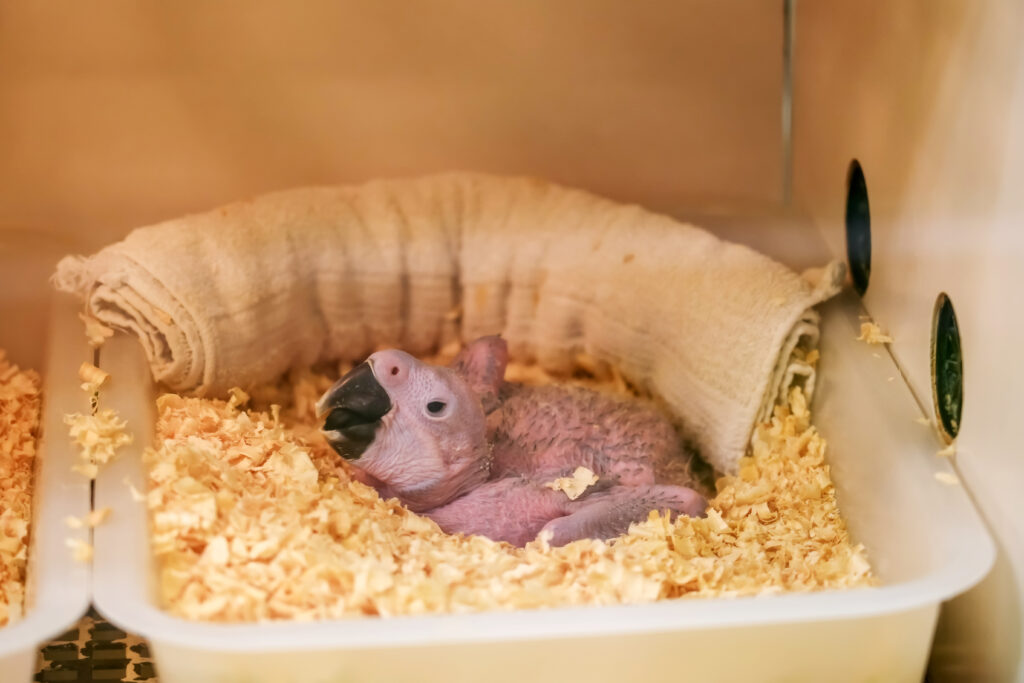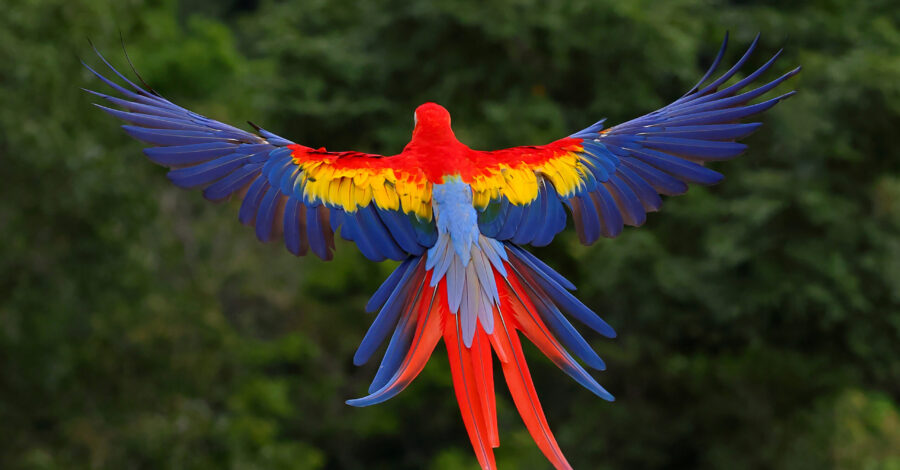A Childhood with Budgies and a Passion for Wildlife
Growing up in the 80s and 90s, I had budgies, colourful, chatty companions that brightened our home. At the time, keeping pet birds was incredibly common, with budgies, cockatiels, and canaries found in households across the UK. As a child, I never questioned it. But as I grew older, I realised that no cage could substitute for the freedom of the skies. That understanding led me to seek birds in their natural habitats.
My fascination with birds was deeply influenced by my dad, or papa, as I called him in Gujarati. He was an avid viewer of the BBC’s Natural World, a renowned wildlife documentary series that began in 1983. Often narrated by Sir David Attenborough, the series brought the wonders of nature into our living room. Watching those documentaries with him sparked my appreciation for wildlife before I ever set foot in a rainforest.
A Tribute to My Dad and His Connection to Nature
In late 2019, my papa fell ill. Though he initially recovered, complications led to his passing on 21 March 2020, just a day and a half before the UK entered its first Covid-19 lockdown. The grief of losing him was compounded by the isolation that followed. I found it too difficult to visit the place where he was laid to rest, so I searched for a way to honour him that felt true to who he was.
That is how I found myself at Macaw Mountain Bird Park in Copán, Honduras. The park cares for over 350 birds, many rescued from the illegal pet trade, and plays a crucial role in conservation by rehabilitating and releasing macaws back into the wild.
During my visit, I learned they had discovered five new macaw eggs, three scarlet macaws and two great green macaws, that would join their release programme. To honour my papa, one of these scarlet macaws was named after him and released into the wild. With only an estimated 20,000 to 50,000 scarlet macaws left globally, each release is significant. Knowing a bird soars in his name in Copán brought me a profound sense of peace.

The Magic of Seeing Birds in the Wild
Long before my papa’s passing, I had already developed a deep appreciation for birds in their natural environments. Birdwatching across Latin America has taken me into some of the most breathtaking landscapes on earth, from dense cloud forests to remote wetlands. I have encountered an incredible variety of species, from tiny hummingbirds hovering mid-air to majestic macaws streaking across the sky.
Spotting a quetzal in the wild is a particularly special moment, and I have been fortunate to see them three times, in both Costa Rica and Guatemala. Their shimmering feathers and long tails are sights that photos cannot fully capture. But beyond quetzals, Latin America is home to a staggering diversity of birdlife, each species with its own fascinating behaviours and ecological role. Observing them as nature intended, without interference, is truly magical.
Why Ethical Birdwatching Matters
My enthusiasm for birds has evolved into a commitment to ethical wildlife experiences. The pet trade, habitat destruction, and irresponsible tourism threaten many bird species. But even birdwatching itself is not always harmless. Unethical birdwatching, such as disturbing nesting birds, using recorded calls to lure them closer, or trampling sensitive habitats, can disrupt their natural behaviours and put unnecessary stress on them.
Ethical birdwatching emphasises patience, respect, and understanding that nature owes us nothing. It is about choosing experiences that contribute to conservation rather than exploitation. That means keeping a respectful distance, avoiding interference, and choosing responsible guides and destinations that prioritise bird welfare.
When I founded Offbeat Horizons, I ensured that wildlife ethics were central to our mission.
From Macaw Mountain to the Loros Foundation
As part of our upcoming Offbeat Horizons Colombia trip, we will visit the Loros Foundation in Bolívar. Much like Macaw Mountain, the Loros Foundation is dedicated to rescuing, rehabilitating, and releasing parrots that have fallen victim to the illegal pet trade. These organisations share a vital ethos, giving birds back their freedom and restoring balance to ecosystems that have suffered from human interference.
Offbeaters will have the opportunity to volunteer at the foundation, engaging directly in its comprehensive conservation initiatives. The Loros Foundation operates a self-sustaining farm that not only provides a vital food source for the birds but also supports the family that maintains the foundation. This farm exemplifies sustainable agriculture by cultivating a diverse array of fruits and vegetables, ensuring a steady supply of fresh produce. Our group will assist in preparing meals and feeding the parrots, ensuring they receive the essential nutrition required for their rehabilitation and well-being. Additionally, we will participate in reforestation efforts, planting native trees to restore critical habitats for Colombia’s endangered parrots.
The Loros Foundation has been instrumental in the recovery of the yellow-eared parrot (Ognorhynchus icterotis), a species once on the brink of extinction. Through dedicated conservation efforts, including habitat restoration and community engagement, the foundation has significantly increased their population.
A significant aspect of their mission is combating poaching. Their anti-poaching efforts include:
- Community engagement – Educating locals about the importance of parrots to the ecosystem and the legal implications of poaching
- Habitat protection – Establishing reserves to provide safe habitats, reducing poaching risks
- Law enforcement collaboration – Working with authorities to monitor and prevent illegal activities related to parrot poaching
These initiatives have curbed poaching and fostered stewardship among local communities, ensuring long-term protection for these vibrant birds.
Seeing the work of both Macaw Mountain and the Loros Foundation reinforces an important truth. Conservation is not just about saving individual animals. It is about restoring ecosystems, changing mindsets, and creating a future where wildlife can thrive without human interference.
For me, this visit is another way to honour my papa’s reverence for wildlife. His passion lives on in the choices I make and the work I support.
Beyond Birds – A Stand Against Exploitation
While my focus here is on birds, the broader issue of unethical wildlife tourism extends far beyond them. Many animal attractions exist solely to exploit, not conserve. The sight of a tiger chained for selfies in Thailand, a dolphin forced to perform in captivity, or a slow loris passed around for tourist photos is a stark reminder of the cost animals pay for human entertainment.
Wildlife should never be reduced to props for tourism. Every choice we make as travellers either supports conservation or fuels exploitation. There is no neutral ground.
Closing the Circle
Looking back, my relationship with birds has come full circle. I started with pet budgies in a cage, never questioning their captivity. Now, I find the deepest joy in seeing birds soaring freely in the wild, just as nature intended.
Honouring my papa by releasing a macaw into the wild felt like the perfect tribute. In doing so, I did not just celebrate his love for wildlife. I let go of something too. In a way, this was my own release.
Travel With Purpose
If you admire birds or seek responsible and meaningful wildlife experiences, this trip is for you. Ethical travel is not about missing out. It is about experiencing more. It is the difference between seeing a macaw in a cage and watching a flock soar across the tropical dry forests.
Birdwatching is more than a hobby. It is a way to connect deeply with the world. Done right, it ensures future generations can experience the same magic of seeing a wild quetzal for the first time.
Are you ready to experience the wild side of Colombia? Join us on this unforgettable adventure.


